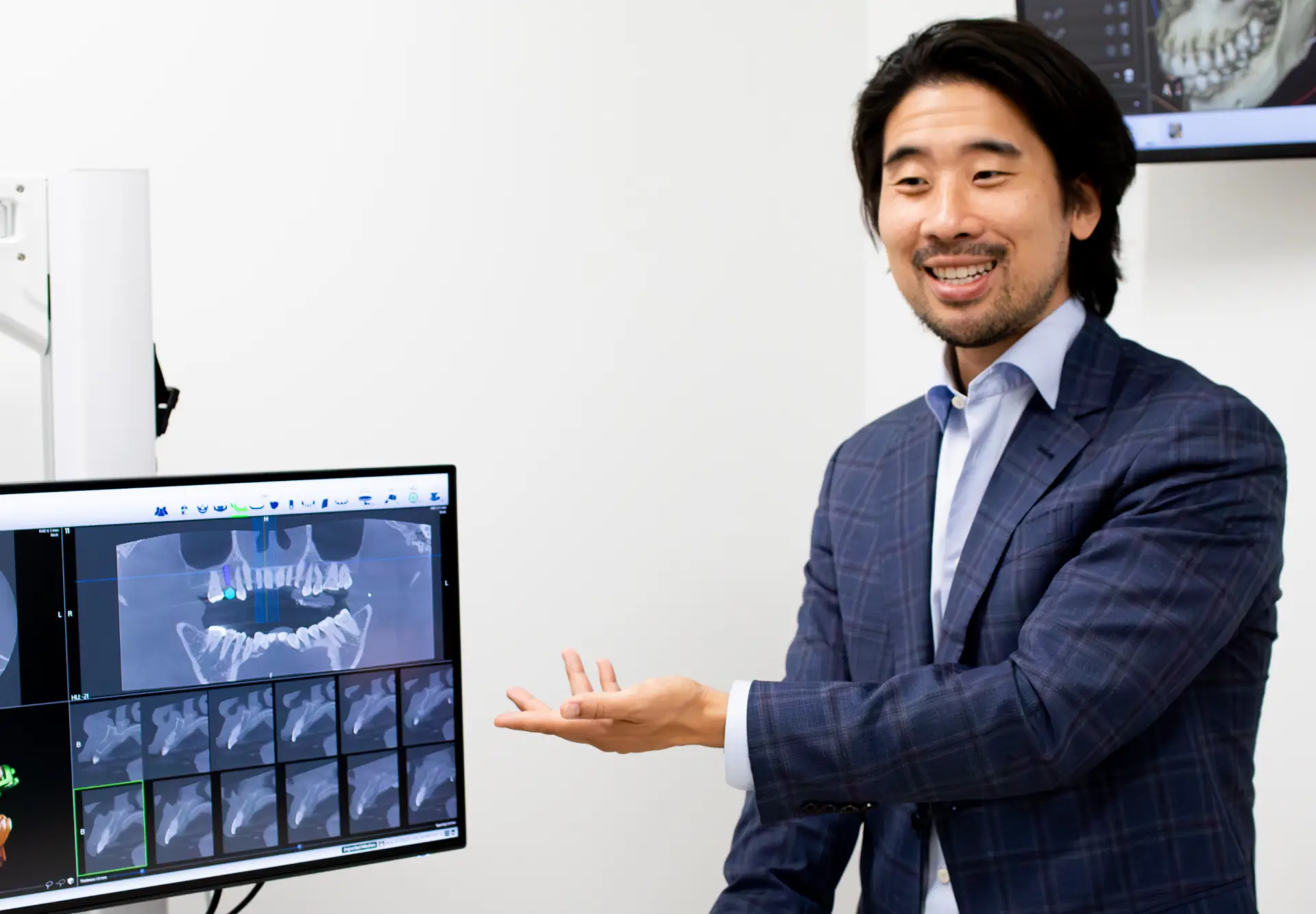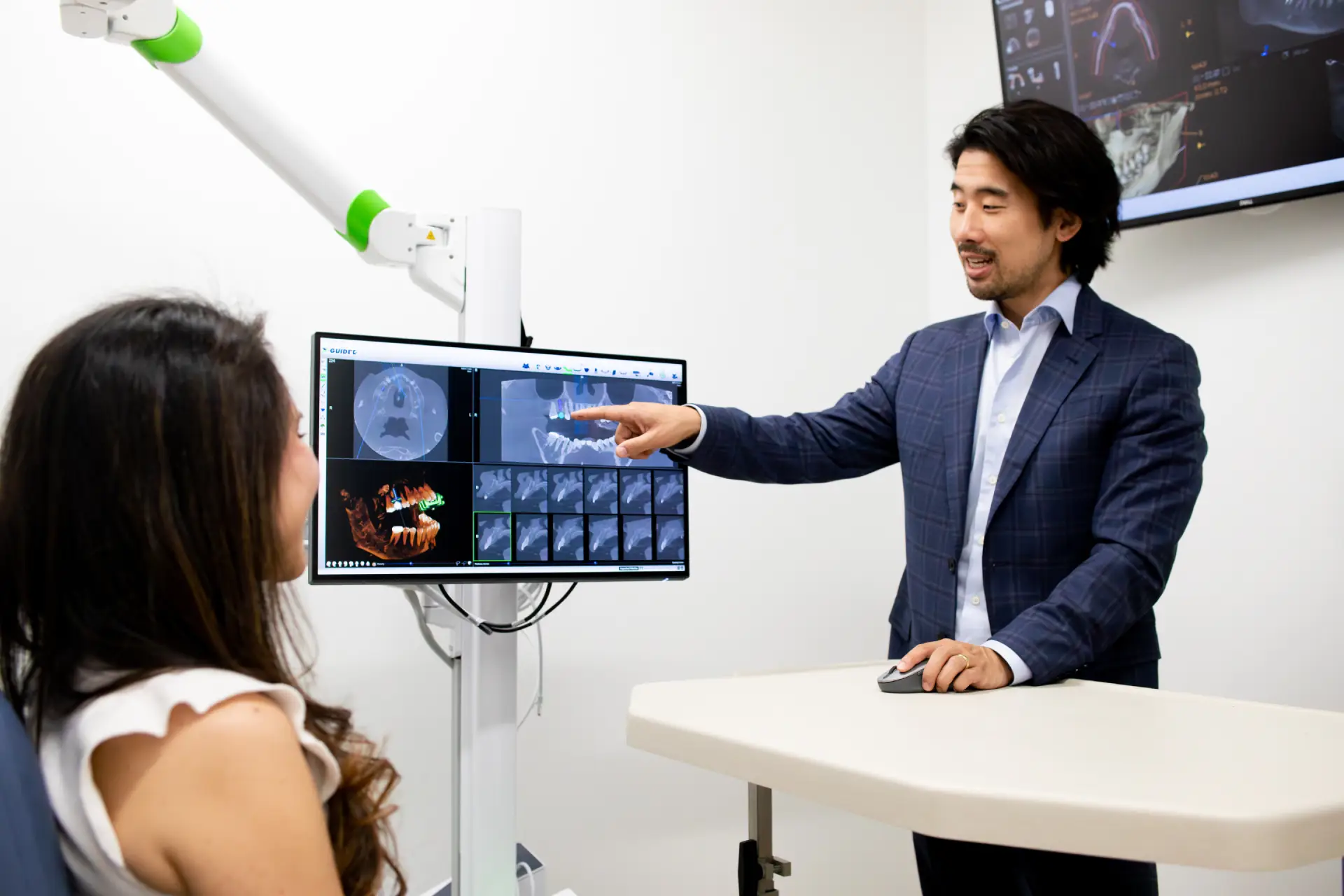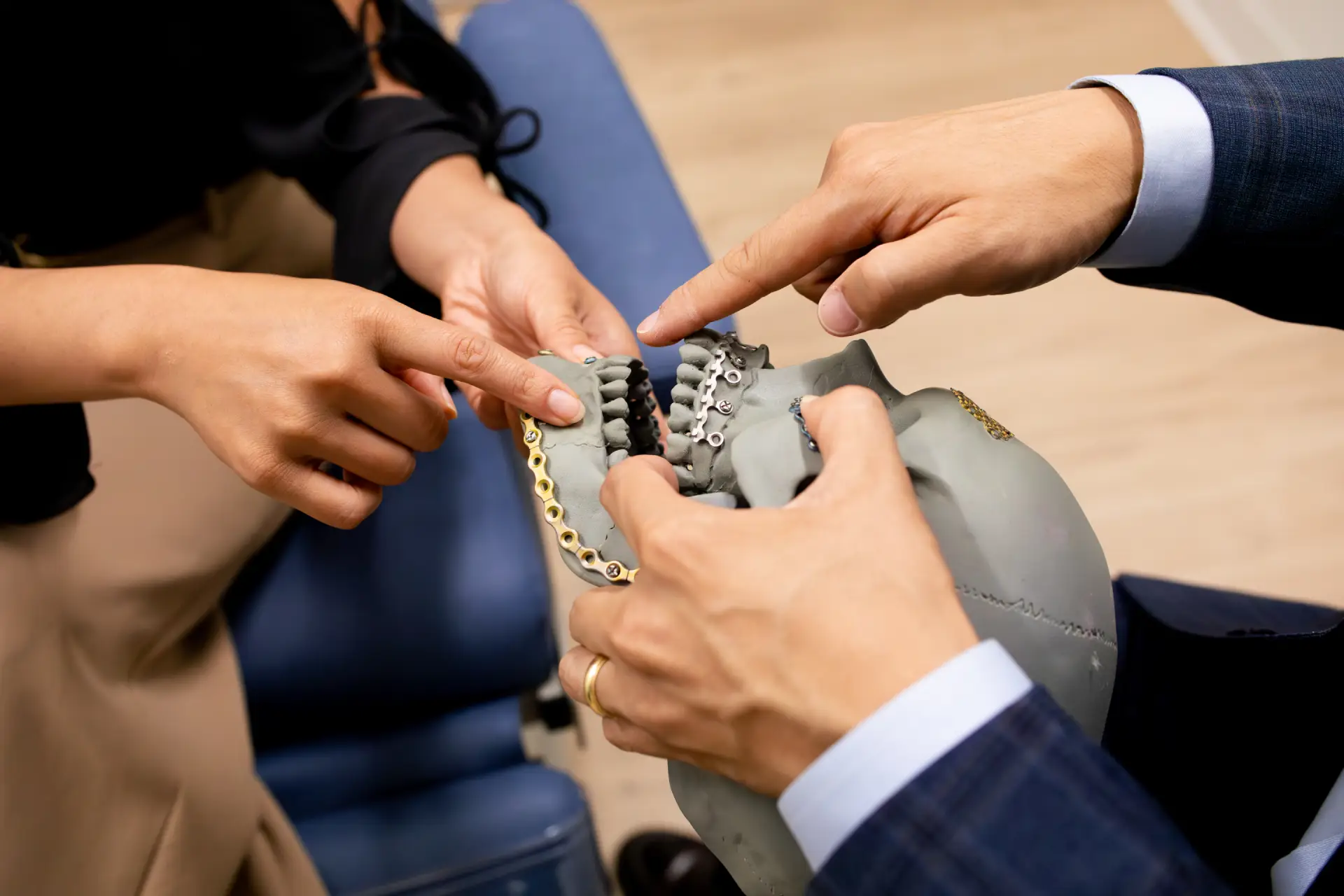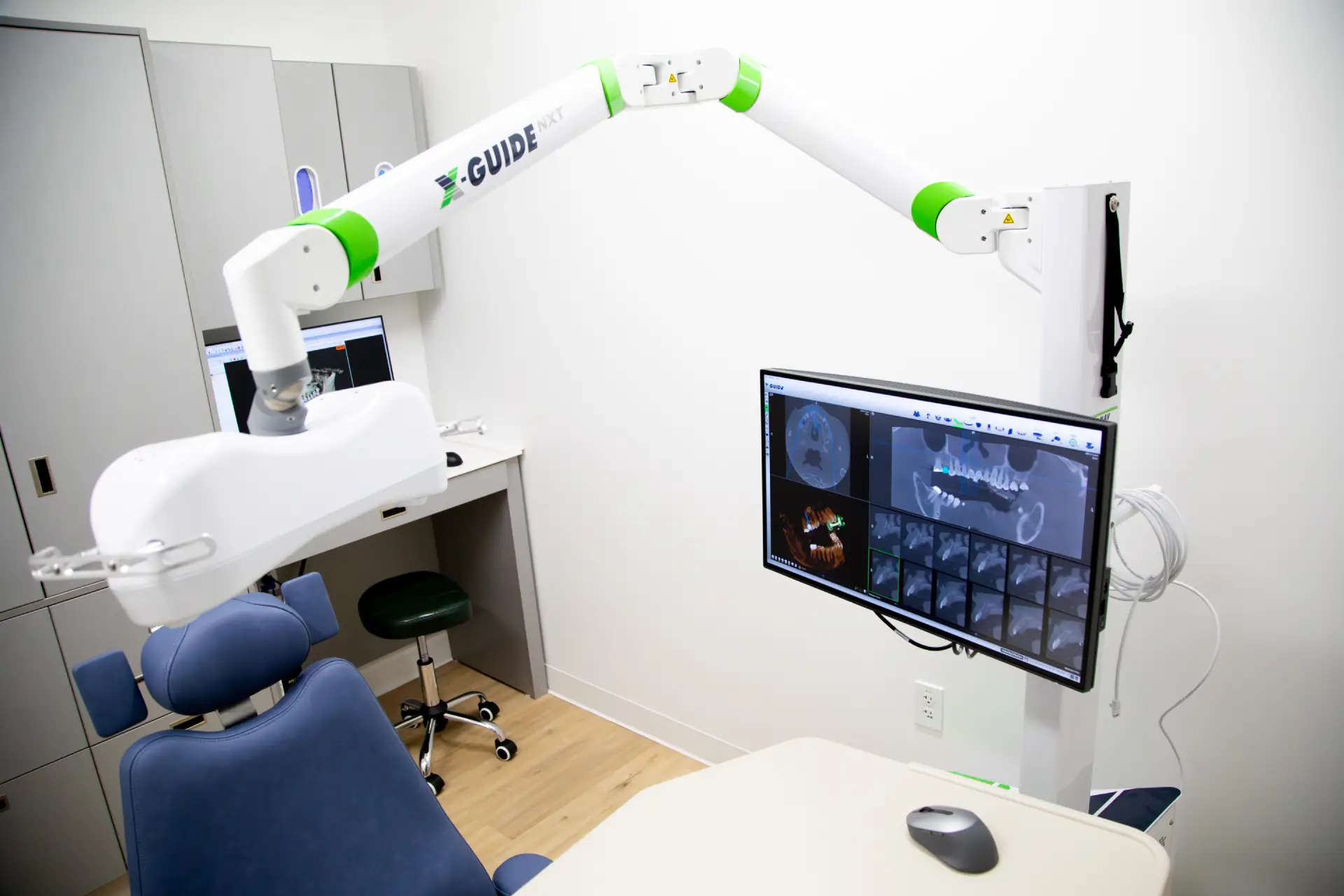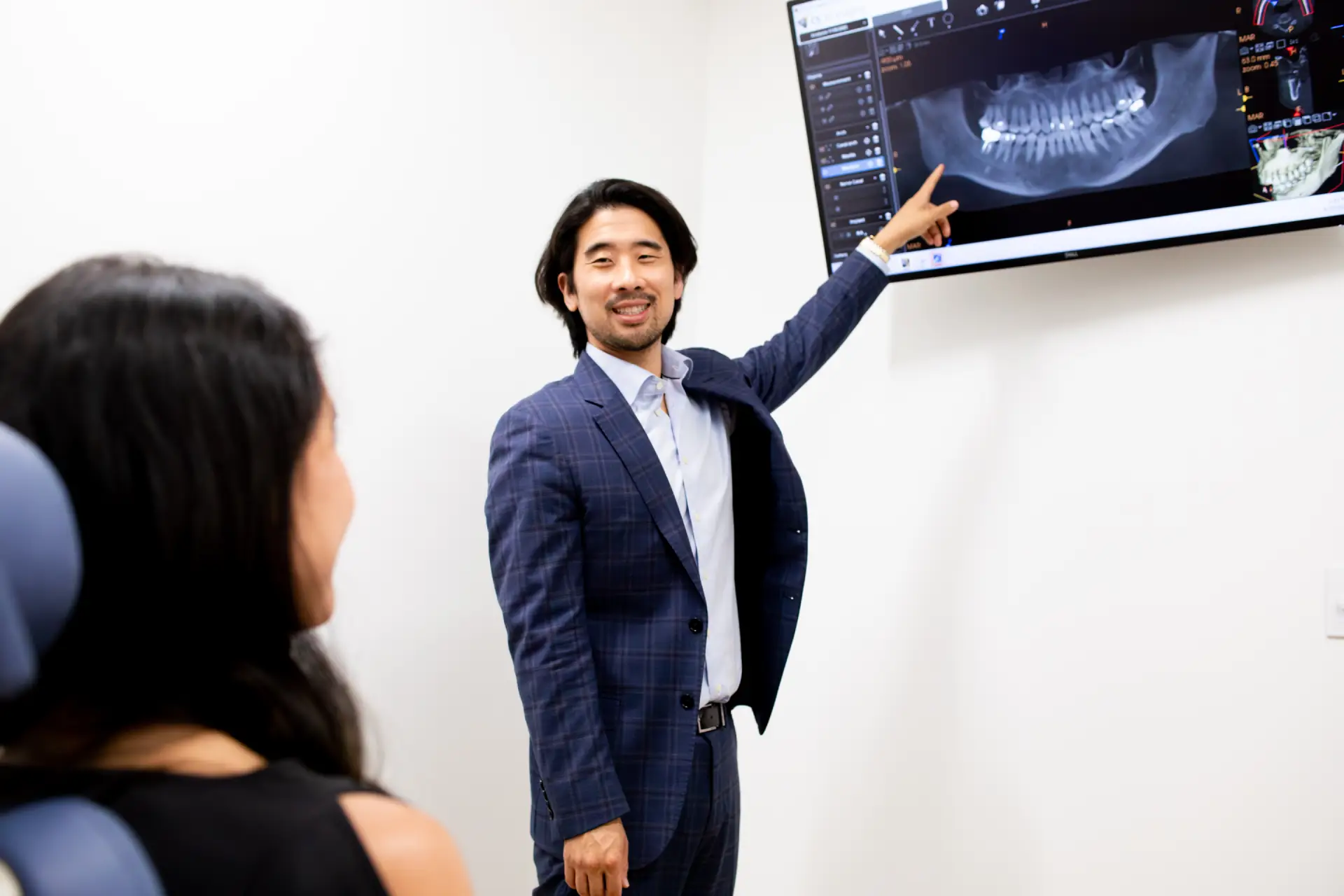
Wisdom Teeth RemovalIn Oakland, CA
Third molar and tooth removal procedures are the most common procedures done by oral and maxillofacial surgeons. Whether for preventative, orthodontic, or restorability reasons, have confidence that Dr. Han will provide the highest level of care for patients and their extraction needs. Dr. Han also strives to improve recovery after surgery and utilizes techniques and biologic materials to accelerate and improve healing.
Why might I need wisdom teeth removed?
Wisdom teeth are often removed to help protect the health of your surrounding teeth and gums. In many cases, these third molars erupt at an angle, which can lead to misalignment and crowding. Partial eruption is another common concern—it can create small pockets in the gums where bacteria collect. However, not all wisdom teeth need to be extracted. If they come in properly aligned and don’t interfere with neighboring teeth, removal may not be necessary. Dr. Han will evaluate your specific case and recommend the best course of action to support your long-term oral health.
The Benefits of Wisdom Teeth Removal
Eliminates Pain and Discomfort
Wisdom teeth can cause significant pain and discomfort as they develop. Because they have no set path of eruption, they often grow at an angle, placing pressure on nearby teeth and surrounding tissues. Removing wisdom teeth can help relieve this discomfort and prevent further complications.
Prevents complications with neighboring teeth
When wisdom teeth erupt at an angle, they can lead to bone loss and periodontal disease around adjacent teeth. They can also create conditions that lead to cavities such as trapping food, making cleaning difficult, or damaging enamel. Proactively removing wisdom teeth before complications arise is often the best approach to protect surrounding teeth, bone, and gums.
Supports Orthodontic Success
Wisdom teeth can interfere with orthodontic treatment by limiting the space available in your jaw. Due to this lack of space, they are often removed before or after orthodontic work. Extracting wisdom teeth helps create the room needed for proper alignment, allowing your remaining teeth to be straightened and maintained more effectively.
The Wisdom Teeth Removal Process

Treatment Plan
Your treatment plan will be based on your medical history and any diagnostic imaging provided by your general dentist. If needed, we may take additional X-rays to ensure we have a complete and accurate understanding of your oral health. From there, we’ll develop a personalized treatment plan and review sedation options to ensure your comfort throughout the process.

The Procedure
Dr. Han will begin by administering local anesthesia along with sedation to ensure your comfort during the procedure. Using minimally invasive techniques, the wisdom teeth will be carefully removed. The surgical sites are then thoroughly cleaned and closed with sutures to promote optimal healing.

Recovery & Aftercare
Before you leave, we will provide detailed post-operative instructions to support a smooth and healthy recovery. While rest and relaxation are key to healing, our team remains readily available should you have any questions or concerns during your recovery.
FAQs
Frequently Asked Questions
Check out these frequently asked questions, or call us to speak with our team.
Wisdom teeth are often removed to help protect the health of your surrounding teeth and gums. In many cases, these third molars erupt at an angle or sideways, which can lead to misalignment and crowding. Another common concern is partial eruption, where the tooth only breaks through the gums partway. This can create pockets where bacteria accumulate, increasing the risk of infection. Removing wisdom teeth before complications arise is often the best way to maintain long-term oral health.
Wisdom teeth don’t always cause pain, but that doesn’t mean they’re free of problems. Even without symptoms, they can be impacted or positioned in a way that leads to crowding, food trapping, difficulty cleaning, or damaging neighboring enamel. Our team will carefully evaluate your case, as early detection is key to preventing future complications.
Thanks to our sedation options, the procedure itself is not painful. You won’t feel any discomfort before or immediately after. After a few hours, it’s common to feel tenderness, swelling, bruising, and possibly some bleeding. These symptoms generally peak 2-3 days after the procedure and will slowly diminish as you continue to heal. Make sure to only eat soft foods for about a week to prevent further irritation.
The most important part of post-operative care following wisdom tooth removal is keeping the surgical sites clean. We’ll provide you with detailed at-home care instructions and schedule a follow-up visit to monitor your healing. If you have any questions or concerns along the way, our team is always just a phone call away.
Tooth extractions—whether for impacted wisdom teeth or severely damaged or decayed teeth—are often covered by insurance when deemed medically necessary. However, coverage can vary depending on your specific plan and provider. We recommend contacting your insurance company directly to understand your benefits and any potential out-of-pocket costs.


